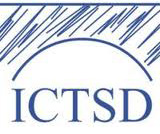 Last week’s meeting of the WTO’s Council on Trade-Related Aspects of Intellectual Property Rights (TRIPS) saw talks proceed on a host of issues, including counterfeit goods, exceptions and limitations to copyright, and a long-running dispute over a Cuban rum trademark.
Last week’s meeting of the WTO’s Council on Trade-Related Aspects of Intellectual Property Rights (TRIPS) saw talks proceed on a host of issues, including counterfeit goods, exceptions and limitations to copyright, and a long-running dispute over a Cuban rum trademark.
US, Japan table submissions on counterfeit goods
The topic of counterfeit goods resurfaced at the 5 June meeting, with several developed countries – including the EU, Canada, Mexico, South Korea, and Switzerland – arguing that such products can have serious health and safety implications.
Discussions on the topic were based on a paper by the US (IP/C/W/570) on securing supply chains against counterfeit goods and a paper by Japan (IP/C/W/571) on trends in the seizure of counterfeit goods. Both papers are available online at http://docsonline.wto.org.
Developing countries such as Brazil, China, and India argued that intellectual property rights infringement should not be confused with sub-standard products, and that the protection of supply chains should instead be the responsibility of the private sector.
India, for its part, argued that a focus on sub-standard goods could have detrimental effects on access to legitimate generic medicines. The EU has previously seized legal generic drugs from India – the world’s largest generics producer – in transit through European ports on the basis of a supposed trademark violation.
India noted that the issue of IP enforcement is “distinct from issues of quality and safety,” as the TRIPS Agreement itself does not make a connection between counterfeit goods and quality and safety of goods. Making that link “marginalises the role of other agencies that are actually mandated with the responsibility of ensuring standards, quality and safety,” added the Indian delegate.
In that context, India made reference to a newly-established mechanism agreed upon in last month’s World Health Assembly “to protect public health and promote access to affordable, safe, efficacious and quality medical products, [and] promote … the prevention and control of substandard/spurious/falsely-labelled/falsified/counterfeit medical products and associated activities.” (See Bridges Weekly 30 May 2012).
These issues “do not fall within the purview of the TRIPS Agreement and therefore are beyond the mandate provided to the TRIPS Council,” India concluded.
Brazil, US join forces on visually impaired instrument
At the request of the US and Brazil, a specific agenda item was added to this session of the TRIPS Council to discuss the status of negotiations on exceptions and limitations to copyright for the visually impaired at the World Intellectual Property Organization (WIPO).
Brazil made a reference to a recent joint statement by Brazilian President Dilma Rousseff and US President Barack Obama that mentioned both countries’ commitment “to the conclusion of an effective international instrument in the WIPO that ensures that copyright is not a barrier to equal access to information, culture, and education for visually impaired persons and persons with print disabilities.”
In its intervention at last week’s meeting, Brazil noted that “this is a moment when negotiations have made a good deal of progress, but further intergovernmental engagement will nonetheless be needed to complete them successfully,” highlighting the need for a diplomatic conference for a treaty on the subject.
The US, meanwhile, noted that while “there is general agreement in [WIPO’s Standing Committee on Copyright and Related Rights, or SCCR] as to the desired objective, there is no agreement yet on how to get there,” specifically regarding what form such an instrument might take.
The topic will continue to be discussed at the next session of the SCCR, slated for 16-25 July.
Rum trademark causes a stir
Another issue that came to the forefront during the discussions was a decade-old ruling (DS176) by the WTO Appellate Body on registering trademarks in the United States involving Cuba. The complainant in the case was the European Communities – now the EU – with Japan and Nicaragua as third parties.
The Appellate Body found that Section 211 of the US Omnibus Appropriations Act of 1998, which prohibits “those having an interest in trademarks/ trade names related to certain businesses or assets confiscated by the Cuban Government from registering/renewing such trademarks/names without the original owner’s consent,” was inconsistent with WTO rules.
Though not a complainant in the original case, Cuba argues that the US Patent and Trademark Office and the US Supreme Court have both rejected a request to renew a Cuban company’s “Havana Club” trademark, which it had held in the US for over 30 years. The island country claims that Washington has failed to implement the WTO ruling by instead giving the “Havana Club” trademark to US-based company Bacardi.
The US, for its part, has consistently held that it is working on implementing the provisions of the ruling.
ICTSD reporting.




